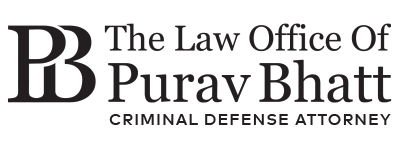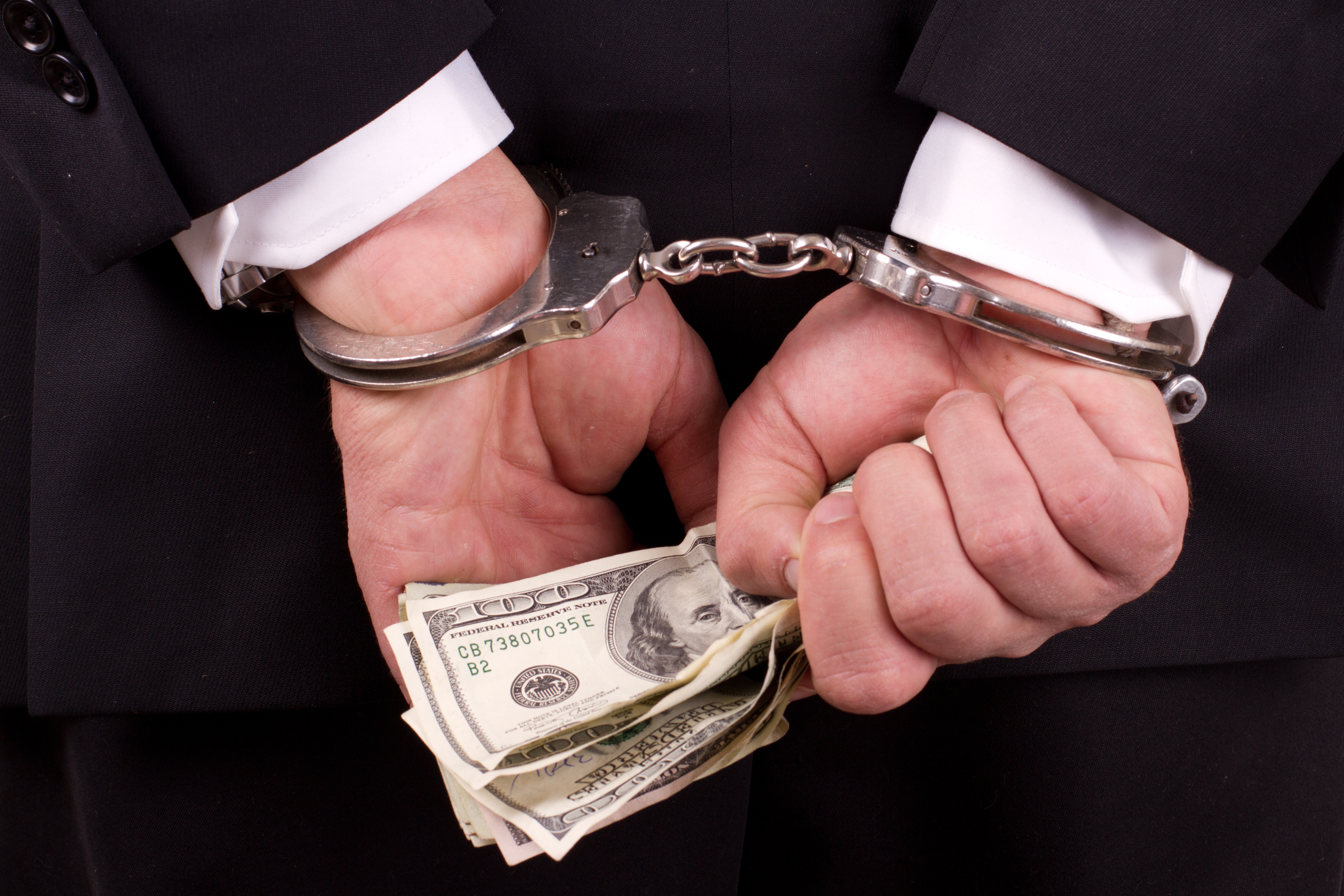White-collar crime is a term used to describe a wide range of offenses that are committed for the purpose of financial gain and often involve an element of deceit, concealment, or violation of trust. The most common examples of white-collar crimes include fraud, embezzlement, insider trading, and money laundering.
How Do White-Collar Crimes Differ From Other Crimes?
The main difference between white-collar crimes and other crimes is that the offenders tend to be in a “higher” social class. White-collar crimes often are very complex and often take place in a business settingings. Here are other ways white-collar crimes differ from blue-collar crimes or street crimes:
Lack of Force or Violence
One of the most notable aspects of white-collar crimes is that they are non-violent in nature. The perpetrators obtain money or further their commercial interests through fraud and deceit, not physical threats or violence.
For example, an employee in a private organization who is responsible for handling the funds might find a way to funnel money into their personal accounts or use the money for their own purposes. This embezzlement does not require the use of force or violence. The employee would need to change the books or create fake receipts in order to misappropriate company money.
On the other hand, many blue-collar crimes, like aggravated assault and battery, involve the use of physical violence. Crimes like robbery and burglary involve the use or threat of force.
Intention
White-collar crimes can be sophisticatedly designed, carefully thought out, methodically executed, and are often hard to detect. In particular, a person who intends to create a Ponzi scheme to defraud people might put in several months or even years of effort to develop a business model that might look perfectly legitimate to unsuspecting people.
Blue-collar crimes, on the other hand, are often fueled by feelings of rage, passion, impulse, and other emotions and are committed in the heat of the moment. For instance, a person who intends to rob someone might simply point a gun at the victim and tell them to hand over their belongings – without putting any more thought or planning into it.
Governments Pursue White Collar Crimes With Extreme Seriousness
White-collar crimes are taken extremely seriously by the government, as they are often committed by people in a position of power and authority who are expected to set an example for others. As a result, these crimes tend to affect the morale of the general population and cause them to lose faith in the system, which can be dangerous for society in the long term.
Contrary to what some people think, white-collar crimes are not victimless crimes. They can wipe out people’s life savings, destroy families, bankrupt companies, affect the market, and have an adverse impact on the overall economy as well. Moreover, the economic impact of white-collar crimes tends to be far more serious compared to other types of crimes.
For example, a Ponzi scheme might not only defraud thousands of investors and leave them penniless, but it might also cause people to lose their faith in public institutions and the ability of the government to enforce the rule of law. It’s why white-collar crimes are often given more resources to pursue than violent crimes by law enforcement agencies. Clearly, when you are facing these serious charges, you need a capable and dedicated white-collar crime attorney in Chicago who will leave no stone unturned to protect your rights.
Differences Between White-Collar Crimes and Corporate Crimes
Corporate crimes are a subset of white-collar crimes, but they are not one and the same. White-collar crimes are typically committed by individuals for their own personal gains. Corporate crimes, on the other hand, are committed by employees on behalf of or for the benefit of the company.
One of the most defining aspects of corporate crimes is that the individuals who commit the crimes usually do not actually believe that they are breaking the law and they do not think of themselves as criminals. Everything they do – from the regulations they violate to the laws they break – is considered part and parcel of their occupational environment.
This is in stark contrast to individual white-collar crimes, where the perpetrators generally know that what they are doing is wrong and that they are breaking the law.
Moreover, many private companies are known to actively encourage their employees to engage in unlawful behavior, or at the very least look the other way so that other employees can continue to break the norms and regulations without any oversight. The tacit approval of their employers gives a sense of legitimacy to the unlawful actions of their employees.
The most common types of corporate crimes include:
- Falsification of financial information
- Self-dealing
- Front running
- Money laundering
- Securities and commodities fraud
One of the best-known examples of corporate crime is the collapse of Enron Corporation back in 2001. Prior to its collapse, Enron was considered one of the most innovative and profitable companies in the country. It was revealed later that the company had been engaging in fraudulent financial reporting practices in order to hide its debts and inflate its profits.
By the time the company eventually collapsed, it had suffered close to $600 million in losses and had $690 million in debt. Several people involved in the scandal – including the CEO and COO – were convicted of a number of charges including insider trading, bank fraud, wire fraud, securities fraud, and conspiracy.
Different Types of White Collar Crimes
Mail Fraud
If a scheme to defraud someone involves the use of the mail system – whether it is the United States Postal Office or a private mail service – it can be considered mail fraud. For example, if an individual sends an offer of employment to someone through the mail, asks them to pay a fee in order to get the job, and takes off with the money, they can be charged with mail fraud.
Wire Fraud
Wire fraud is a crime that involves the use of a phone, email, or any other type of electronic communication in order to defraud people. One of the most prominent examples of wire fraud is the Nigerian prince scam, in which individuals pretending to be a part of the Nigerian royal family in dire need of financial support send out emails to unsuspecting people in order to get their banking information or to get them to send money.
Another form of wire fraud is when an individual calls or emails someone to inform them that they have won a contest and need to pay a processing fee to get their winnings.
Tax Fraud
The term “tax fraud” can be applied to any violation of Title 26 of the Internal Revenue Code. The most common examples of tax fraud include:
- Not reporting taxable income
- Falsification of tax-related documents
- Destroying tax-related documents
- Overstating deductible expenses
- Claiming tax breaks and tax credits for non-existent family members and dependants
- Providing false information or making false statements to IRS agents
One of the most common tax fraud-related offenses that people are often charged with within the US is tax evasion. Any person who knowingly and intentionally misrepresents their taxable income for the explicit purpose of avoiding paying taxes can be charged with tax evasion.
Healthcare Fraud
Healthcare fraud is a type of white-collar crime in which an individual manipulates the healthcare system for financial benefits. This type of fraud can be committed by healthcare service providers or patients, as well as third parties impersonating healthcare service providers or patients.
The most common types of healthcare fraud committed by healthcare service providers include:
- Double billing (submitting bills to Medicare/Medicaid, a private health insurance company, or a patient for the same service)
- Phantom billing (billing for a service, treatment, procedure, or medication that was never performed or provided to a patient)
- Unbundling (submitting multiple bills for the same service or using two or more Current Procedural Terminology (CPT) codes in order to obtain higher reimbursements)
- Upcoding (billing for a more expensive procedure, treatment, or service than the one that was actually performed or provided to the patient)
The most common types of healthcare fraud committed by patients include:
- Allowing another individual to use their health insurance for financial benefits
- Using someone else’s health insurance
- Selling prescription medications to third parties for money
- Visiting multiple physicians to get a variety of prescriptions and using the medications for personal consumption (common among people with substance abuse disorders) or selling the medications for money
The most common types of healthcare fraud committed by third parties include:
- Impersonating a healthcare service provider
- Creating fake prescriptions
- Obtaining people’s health insurance information through fraudulent means in order to enroll them in a fake healthcare plan or to bill for services not rendered
Bribery
Bribery is a criminal act that involves offering money, gifts, favors, or any item or service of value to an individual or a company in order to influence them or to get them to do something in return. For instance, if a pharmaceutical company offers gifts or any other kind of financial benefit to a doctor in order to get them to prescribe their drugs, it can be considered an act of bribery.
The different types of bribery offenses include offering bribes to a public official, offering bribes to a witness in return for false or altered testimony, offering bribes to representatives of a bank, and offering bribes to foreign government officials.
Embezzlement
Embezzlement is a criminal act in which an individual willfully and deliberately misappropriates the funds or assets that they are entrusted with handling. For example, if a person who is in charge of a charity uses the donations for personal expenses, it can be considered an act of embezzlement.
Insider Trading
This is one of the most common types of white-collar crimes committed in the finance industry. It basically involves buying or selling stocks based on insider information that is not available to the public.
Let us assume that a person who works in a pharmaceutical company comes to know that the FDA is about to approve a major drug. They purchase a large number of the company’s shares in order to profit from the increase in stock price when the announcement is made. It’s an act of insider trading since they bought the shares based on insider information that was not available to others.
Similarly, if the person comes to know that the FDA is about to reject the drug, they might sell their shares before the news becomes public in order to avoid the losses they might suffer due to the decline in stock price.
If the person in question tips off their family members and friends and if they buy or sell shares based on the information, they can face charges of insider trading as well.
Ponzi Schemes
A Ponzi scheme is a type of white-collar criminal offense in which an individual or a company swindles money from the public by promising to offer extraordinary returns on their investment. In a Ponzi scheme, the organizer pays their existing set of investors by collecting money from new investors.
Ponzi schemes typically do not have any system to generate earnings through legitimate means. As a result, they have to rely on new investors and the investments they make in order to pay their existing investor base. Once new investors stop signing up for the scheme or if a large number of existing customers decide to cash out, the scheme will collapse.
The best-known example of a Ponzi scheme – which also happens to be the largest Ponzi scheme in history – is the investment scandal orchestrated by Bernie Madoff. Through his investment securities firm, Madoff ran an elaborate Ponzi scheme and swindled more than $20 billion from his investors.
Money Laundering
Money laundering – as the term indicates – involves the laundering of dirty money in order to make it clean. The dirty money usually comes from illegal sources like drug trafficking, gambling, prostitution, and arms sales. It’s funneled through a legitimate business or a fake business set up for the explicit purpose of laundering the money.
Are White Collar Crimes Prosecuted at the State or Federal Level?
Generally, white-collar crimes are prosecuted at the federal level, as they often involve violations of federal statutes. Depending on the nature of the crime and the laws violated, several federal agencies might be involved in the investigation.
Federal agencies that can investigate white-collar crimes include the Federal Bureau of Investigation (FBI), the Internal Revenue Service (IRS), the Securities and Exchange Commission (SEC), the Department of Justice (DOJ), the Food and Drug Administration (FDA), the Department of Labor (DOL), and the Department of Homeland Security (DHS).
Penalties for White Collar Crimes
White-collar crimes can be prosecuted as a misdemeanor or felony – largely depending on the amount of money involved in the crime in question. Depending on the charges, the fines can range from a few thousand dollars to hundreds of thousands or even millions of dollars. Similarly, prison terms can range from a few years to 30 years.
White-collar crimes can also lead to civil liability, which means you can be sued by the victims of your crime. If they win – which is entirely possible since the burden of proof in civil cases is considerably lower compared to criminal cases – you might pay a substantial amount of restitution to the victims.
Apart from this, being convicted of a white-collar crime can severely affect your career. Most of these crimes involve an element of deceit, fraud, or violation of trust and other employers might be reluctant to hire you – especially for jobs that involve handling funds or assets.
Why Do You Need an Experienced Criminal Defense Lawyer on Your Side?
White-collar criminal offenses in Illinois are prosecuted by federal agencies backed by the U.S. government. They have unlimited funds and resources at their disposal to build and present criminal cases. They can afford to conduct a detailed investigation, take as much time as they need to collect evidence, and use as many resources as they need in order to put together a solid case against you.
Hiring a capable and resourceful Chicago criminal lawyer is the best way to protect your rights and present a defense against the charges you are facing. Depending on the circumstances, your criminal defense attorney might choose to use one of the following defenses to beat the charges against you.
Lack of Intent
When it comes to white-collar crimes, the prosecution not only needs to prove that a crime was committed, but also needs to prove that the perpetrator committed it intentionally. If there was no intent on your part to commit a crime, your lawyer might use your lack of intent as a defense against your charges.
Entrapment
If you were convinced, persuaded, or coerced by law enforcement to commit a white-collar crime, which you would not have committed otherwise, your Chicago criminal defense lawyer can use it as a defense against your charges. Under the law, police officers and federal agents are allowed to set up false operations to catch suspected individuals. At the same time, they do not have the right or authority to force someone to commit a crime.
Duress
If you committed the crime in question under duress – due to a threat of bodily harm or death – a skilled criminal defense attorney can make the argument that you would not have committed the crime if not for the danger to your life.
Violation of Fourth Amendment Rights
A common defense used in both white-collar crimes and violent crimes is a violation of the Fourth Amendment. If the prosecution’s evidence was obtained through unlawful means – such as an unauthorized search and seizure – your lawyer can file a motion with the court to suppress the evidence in question so it cannot be used against you at the trial. In the absence of important evidence, the prosecution might not be able to prove your guilt beyond a reasonable doubt.
Facing White-Collar Criminal Charges? Get Legal Representation from Our Top-Rated Chicago, IL Criminal Defense Lawyers
If you are under investigation for a white-collar crime or if you have been charged with a white-collar crime, it is critically important to hire an experienced Chicago criminal defense attorney as soon as you possibly can. Depending on the criminal charges you are facing, the consequences for felony and misdemeanor cases can be extremely serious – ranging from hefty fines to lengthy prison terms.
You need a seasoned criminal defense lawyer who knows how the federal criminal justice system works and has successfully defended people charged with similar crimes.
At the Law Office of Purav Bhatt, we have extensive experience in defending individuals accused of white-collar crimes in state and federal courts. If you are currently under investigation, we will do everything in our capacity to make sure you are not charged with a crime. If you have already been charged, we will defend you aggressively and take all possible steps to get the criminal case dismissed or to minimize the consequences of a conviction.
The founder of our law offices, Purav Bhatt, is a former prosecutor in Cook County. Known for his in-depth knowledge of criminal law, excellent negotiation skills, and unmatched work ethic, Purav Bhatt is rated highly by his peers and clients. Over the years, the Law Office of Purav Bhatt has built a vast network of experts, developed numerous effective defense strategies, negotiated excellent deals, and argued vehemently in court in order to achieve the best possible outcome for our clients.
Call our criminal defense law firm today at 773-791-9682 or use our online contact form to get in touch with one of our Chicago, IL white-collar criminal defense lawyers.







